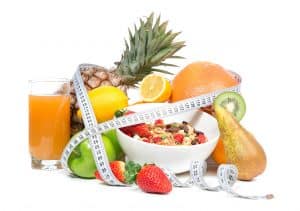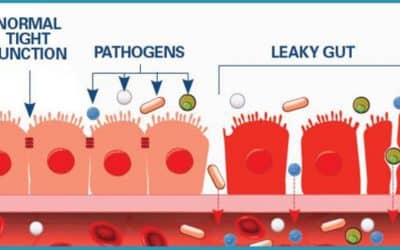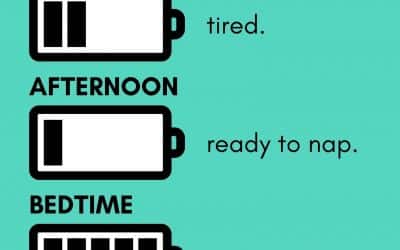
Weight loss resistance is defined as the inability or difficulty losing weight despite a calorie deficit.
Since more than 95% of diets fail, perhaps it’s more than likely that you fit the above description and that your body is resistant to weight loss.
I know how you feel. I have been a nutritionist for 30 years and have counseled 1000’s of clients with this problem.
Read on to discover the top 7 problems and solutions to overcoming weight loss resistance.
Weight Loss Resistance Problem #1: Eating the Wrong Diet

If you are not losing weight, check your diet first.
Are you eating refined carbohydrates such as white rice, white pasta, desserts, pizza, bagels , breads, cereals, muffins and other packaged foods?
If so, these refined carbohydrates raise a hormone called insulin. One of insulin’s roles is to help the body absorb sugar, but it can also encourage fat storage.
Do you have sufficient protein at each meal? Protein helps with satiety and keeps blood sugar from spiking, which in turn decreases fat storage.
Missing out on the essential fats? Lets face it, if you don’t eat fish, nuts, avocado nor use organic cold pressed oils it is very difficult to get healthy fats in the diet. The bottom line is that healthy fats help us burn fat.
Solution #1: Eat the Right Diet

While there are numerous ways to eat , most nutritionists and researchers agree on a few concepts for increasing metabolism and overcoming weight loss resistance.
First and foremost, switch to complex carbohydrates, foods such as beans, yams, brown rice, quinoa, and whole grains such as oats, barley, amaranth, millet and farro. These contain fiber and have less of a tendency to store as fat because they are digested slowly and don’t release as much insulin as refined carbohydrates.
Secondly, having protein at each meal. Protein sources include wild caught fish, grass fed meats and organic poultry, eggs and vegan sources such as beans or tofu. Protein will increase the metabolism and help with maintenance of muscle mass.
Thirdly, eating more healthy fats, such as avocado, fatty fish, nuts, seeds, and olive oil will help the body stay fuller longer, keep blood sugar more stable and provide fat soluble vitamins (vitamins A,D,E,K). Dozens of scientific studies show that eating healthy fat does not lead to weight gain. The real villain is sugar and refined carbohydrates.
To implement these suggestions, these Weight Loss Menus can help.
Weight Loss Resistance Problem #2: Doing the Wrong Exercise
Are you doing too much cardio exercise (hours of biking, running, walking, treadmill or elliptical)? While there is nothing wrong with doing some cardio , too much of it can raise the stress hormone cortisol.
High cortisol can increase fat storage, and too much cardio can increase muscle loss therefore slowing down metabolism.
Is weight training a part of your exercise program? If you are not lifting weights you are losing muscle mass as you age. Typical muscle mass loss is 3-8% of muscle per decade after the age of 30! Low muscle mass means low metabolism.
Solution #2: Do the Right Exercise

As mentioned above, while cardiovascular exercise has some benefit, adding weight training to your workouts will help maintain muscle as you age, therefore helping increase metabolic rate.
Muscle will burn about 7-10 calories for each pound of body weight, while fat will only burn 2-3 pounds.
Your best exercise for weight loss is short bursts of high intensity cardio training (HIT), alternated with lifting weights.
Weight Loss Resistance Problem #3: Timing Meals Incorrectly
If you are eating every 2-3 hours, then every time you eat, you are running on those calories and not burning fat stores.
In addition, if you are eating your dinner meals too late (after 6pm for dinner), it is more likely you will store those calories as metabolism is slower in the evening, and most likely you are not as active.
Solution #3: Time your Meals Correctly

Timing your meals correctly can have a large impact on your weight loss.
One such method is called Intermittent fasting. This is a type of eating plan where you cycle your eating between periods of fasting and then eating.
For instance one method called 16:8 is eating all your food in an 8 hour window, (for example 9-5pm) and then fasting until the next morning allowing no food for about 16 hours. This fasting state allows the body time for cellular clean up and renewal and can increase metabolism.
Another method is trying to eat 3 meals about 4-5 hours apart vs eating 6 small meals 2 hours apart. Eating less often can also contribute to better weight loss.
Weight Loss Resistance Problem #4: Hormone Imbalance
Having hormone levels out of balance may be one medical reason for not losing weight. Hormones such as elevated cortisol levels (a stress releasing hormone), low thyroid hormone, or unbalanced female (estrogen, testosterone, progesterone, DHEA) or male hormones (testosterone, DHEA) could contribute.
High Levels of insulin or leptin can also have an impact. Both of these hormones when elevated have been shown to cause weight gain.
Solutions #4: Get Your Hormones Tested and Balanced
In order to lose weight if your hormones are imbalanced, you may need to have your doctor check the following labs for evaluation and correct them using either medication or natural treatment.
- Thyroid hormones: TSH, T3, T4, rT3, TPO
- Cortisol levels
- Estrogen, progesterone, testosterone and DHEA-S : female hormones
- Testosterone, Free Testosterone, DHEA-S : Male hormones
- Leptin levels
- Insulin levels
Weight Loss Resistance Problem #5: Poor Sleep

Lack of sleep, (less than 7 hours) per evening or poor quality of sleep can slow metabolism down and increase sugar and carbohydrate cravings by increasing a hunger hormone called ghrelin.
Studies show that insufficient sleep is associated with obesity.
Solution #5: Good Quality and Quantity of Sleep
Sleep has a large impact on your health and poor sleep can contribute to making it more difficult to lose weight. Sleeping for 7-8 hours is your best option for weight loss!
Here are some suggestions to help with increasing sleep quality and duration.
- Make sure the room is at least 65 degrees or less , this contributes to better sleep quality.
- Keep the room very dark or wear a sleep mask to help the body produce melatonin (the sleep hormone)
- Turn off cell phones and computers to avoid blue light which could lower melatonin levels
- Try an epsom salt bath, Epsom salt contains magnesium and can help the body relax
- If you need more help use sleep vitamins.
- Use a sleep device and tracker, one great one is the Oura ring.
Weight Loss Resistance Problem #6: Lack of Micronutrients
First, most of us do not get enough variety in our foods , we tend to eat the same foods all the time. This results in lack of a low micronutrient intake which can slow metabolism.
Secondly, Most foods are grown in depleted soils, travel quite a distance to get to us and as a result lose important minerals.
Lastly, even if you are taking a multivitamin, many of them are low quality, in the wrong forms and are not bioavailable.
Solution #6: Increase Micronutrient Density through Food and High Quality Supplements

Americans suffer from massive nutritional deficiencies, studies show this can be part of the obesity epidemic. Deficiencies that are prevalent are vitamin C, D, E, magnesium, omega 3 fats, chromium, and vitamin A to name a few.
How does this happen and why are we so undernourished?
Unfortunately our food today is less nutritious. We don’t eat enough whole, unprocessed, nutrient-dense foods. Foods such as fruits, vegetables, wild caught and grass fed fish and meats, whole grains and healthy fats to name a few. What We do eat is too much high sugar, refined flours and refined vegetable oils, as well as packaged and processed foods.
When micronutrient deficiencies are part of my clients problems I find that supplementing with a high quality multivitamin, vitamin D3, omega 3 fish oils, and magnesium to be a good start.
If you want to get an immediate idea as to what you are deficient in try cronometer, this app tracks up to 82 nutrients as well as your total calories, proteins, carbohydrate and fat grams.
Weight Loss Resistance Problem #7: Poor Gut Health
It has been said we are what we absorb more than what we eat.
Poor gut health such as low stomach acid, constipation, loose stools, can all cause issues with the breakdown and absorption of food.This can result in an increase in the ability of the gut to absorb more calories.
Lack of the correct balance of the healthy bacteria in the gut, can also increase obesity.
Solution #7: Heal Thy Gut
Gut health is probably one of the most important factors in overall health! Numerous studies have demonstrated links between gut health and the immune system, mood, autoimmune disorders, skin conditions, and cancer and obesity to name a few.
The term “ gut microbiome” refers to the microorganisms living in your intestines. A person can have up to 500 different species of bacteria in their digestive tract.
To heal the gut it is important to eat the right diet, sleep well, exercise and get the right nutrients.
Most importantly, prebiotics (plant fibers that help good bacteria grow in the gut) and probiotics (good bacteria for the gut) are important. Prebiotics and probiotics contribute to the “ gut microbiome” ; this refers to the microorganisms living in your intestines. A person can have up to 500 different species of bacteria in their digestive tract.
Here is a list of foods that contain pre and probiotics. Most individuals are not eating enough of these healthy foods, so they may have to use supplements to help.
Other supplement recommendations for a healthy Gut include digestive enzymes , fiber and l-glutamine.
For more detail about gut health I refer you to my article on leaky gut here.
For Gut Health Support Menu Plans click here.
Interested in Gut health testing click here.
Conclusion
There are many reasons why it can be difficult to lose weight. Eating the wrong diet or doing the wrong exercise. Nutritional deficiencies, hormonal imbalance, poor timing of meals, poor sleep and an imbalanced gut can contribute.
Solutions to weight loss resistance are to start with the right diet and exercise, take the best supplements, get adequate sleep and time your meals appropriately.
In addition, you may have your doctor test your thyroid levels, insulin, leptin and hormone levels and then try to optimize these through medication or natural treatment.
As you can see weight loss is not just about food, as there are many other factors to consider.
If you are interested in losing weight permanently and getting to the cause of weight loss resistance, please feel free to contact me for a full comprehensive evaluation or for a no obligation information session.




0 Comments